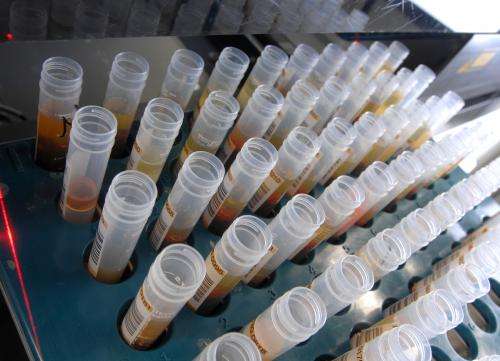Quick blood test for malaria

Siemens is working on a procedure that would allow blood to be routinely tested for malaria. Physicians normally diagnose the tropical disease by using a microscope to search for parasites in blood samples. The problem is that practically every instance of fever in countries where the disease is common is treated with antimalarial drugs, despite the fact that doctors don't even know if the patient is afflicted with malaria. Conversely, doctors in countries where malaria is rare often don't associate their patients' symptoms with the tropical fever and therefore don't make the correct diagnosis. As reported in the Siemens research magazine Pictures of the Future, scientists from Siemens' research department Corporate Technology (CT) have now developed a method that can detect malaria using information from a standard blood test. The scientists' goal is to implement the new procedure in Siemens' ADVIA 2010 hematology system, which is now being used in many hospitals around the world.
Malaria is one of the world's most devastating tropical diseases. According to the World Health Organization, some 200 million people became afflicted in 2012, and more than 600,000 people died. It's difficult to make a proper diagnosis because the symptoms can have many different causes. Medical lab technicians also need to have a lot of experience to identify malaria parasites under a microscope. Experts say that only around ten percent of actual cases worldwide are diagnosed as such. Being able to detect the disease through a blood test would improve the situation. The problem up until now was that although malaria does change certain blood attributes, such as the number of platelets, the same is also true of other illnesses.
The idea was to identify a malaria affliction on the basis of a distinct combination of several different blood attributes. Together with colleagues from Siemens Healthcare, CT researchers analyzed anonymous blood data from samples taken from both healthy individuals and malaria patients. They initially selected parameters that might potentially be related to malaria from the hundreds of measurement values produced by the ADVIA system. They then used statistical methods to search for distinct blood value patterns in the samples taken from malaria patients. In this manner, they developed a formula for searching for these "malaria patterns" in blood sample data.
Their technique can also be adapted to different situations. For example, sometimes it's important to be able to detect malaria even if the number of parasites present in blood is very low - i.e. the triggers must be very sensitive. In other situations, doctors want to be very certain they're making the right diagnosis in order to avoid false alarms. The new formula for malaria diagnosis performs very well with respect to both sensitivity and specificity.
The formula is based on the blood values associated with the most common form of malaria. The researchers are further developing their method in order to be able to distinguish between the seven different types of malaria and to test how well their method diagnoses each of them. They are also analyzing additional blood data sets from different regions around the world with the goal of making their procedure even more robust.
















